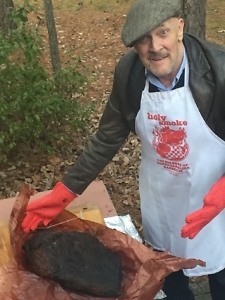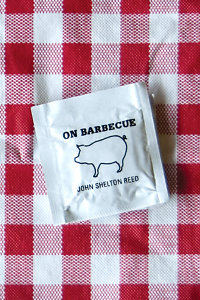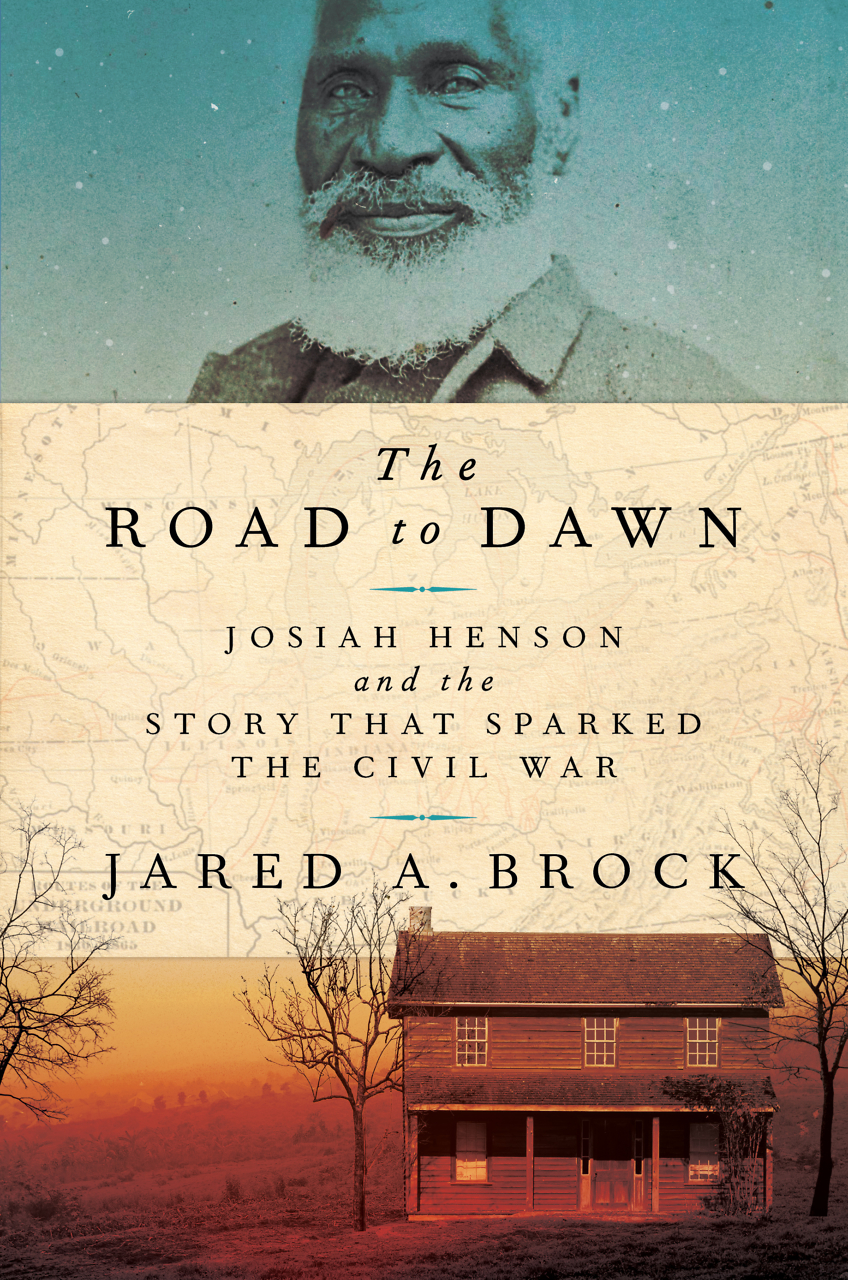Taste, Tradition, and a Sense of Place
A devoted barbecue fan shares his observations over nearly 30 years of good eating
“I once suggested half-seriously that if the South needs a new flag — as it surely does — we could do worse than to use a dancing pig with a knife and fork,” writes cultural commentator John Shelton Reed in his new book, On Barbecue. A Kingsport native who is passionate about the subject, Reed characterizes East Tennessee as “a place regrettably deficient in barbecue tradition,” unlike his adopted state of North Carolina. That’s where Reed taught sociology for more than 30 years at Chapel Hill and where he was introduced to this Southern delicacy: “I loved North Carolina barbecue from the first bite.”
 On Barbecue is an eclectic collection of pieces written between 1992 and 2020, including previously published articles and essays, book reviews, and excerpts from Reed’s earlier books — most notably, Holy Smoke: The Big Book of North Carolina Barbecue. Running the gamut from the history of barbecue to the regional differences in recipes to the importance of traditional cooking methods, On Barbecue paints the picture of a man passionate about “the national dish of the South” with a sharp sense of humor and a strong belief in the sanctity of this delicious American institution. Most of all, it’s a love song to his favorite food.
On Barbecue is an eclectic collection of pieces written between 1992 and 2020, including previously published articles and essays, book reviews, and excerpts from Reed’s earlier books — most notably, Holy Smoke: The Big Book of North Carolina Barbecue. Running the gamut from the history of barbecue to the regional differences in recipes to the importance of traditional cooking methods, On Barbecue paints the picture of a man passionate about “the national dish of the South” with a sharp sense of humor and a strong belief in the sanctity of this delicious American institution. Most of all, it’s a love song to his favorite food.
According to Reed, “we first encounter something Southerners would recognize as barbecue” in the West Indies in the 16th century. The art of cooking meat over smoking wood eventually made its way to the North American colonies. By the 1700s, Americans were cooking whole animals outdoors, slowly, at low temperatures, over pits filled with hardwood coals at large community gatherings. But it was not until the 19th century that the culinary influence of African slaves led to the widespread adoption of a vinegar-and-pepper sauce to tenderize and flavor the meat. Bottled tomato ketchup was introduced in 1876 — changing barbecue sauce forever — and once automobiles became commonplace, the community barbecue tradition gave way to the rise of the regional restaurant.
 The fat was in the fire, so to speak, and that’s where all the trouble begins, as Reed notes: “Barbecue drives a wedge between Texas (beef) and the Carolinas (pork), and completely isolates those parts of Kentucky around Owensboro (mutton). Even porcivores can’t agree: barbecue divides western North Carolina (tomato) from eastern North Carolina (no tomato), not to mention from South Carolina (mustard). You might say barbecue pits Southerners against one another. (Sorry.)”
The fat was in the fire, so to speak, and that’s where all the trouble begins, as Reed notes: “Barbecue drives a wedge between Texas (beef) and the Carolinas (pork), and completely isolates those parts of Kentucky around Owensboro (mutton). Even porcivores can’t agree: barbecue divides western North Carolina (tomato) from eastern North Carolina (no tomato), not to mention from South Carolina (mustard). You might say barbecue pits Southerners against one another. (Sorry.)”
Reed has traveled far beyond the four major barbecue centers — the Carolinas, Memphis, Texas, and Kansas City — in his quest to sample as many versions as possible. (In as distant a locale as London, he was gratified to find barbecue prepared by a bloke from Arkansas named Bubba.) The book includes a 2009 interview with Reed and his wife, Dale, who notes that the two of them have each consumed “something between five hundred and a thousand plates.” In 1992 Reed was even invited to judge a barbecue cooking contest in Memphis. His favorites didn’t win; in fact, he was surprised to learn the winners that year were from Illinois — another indication that barbecue knows no boundaries, not even the Mason-Dixon line.
No matter what type of barbecue one prefers or where it is found, Reed is adamant about two things. First, it should reflect the traditions of the region in which it is prepared, and second, it should be cooked over wood. Alarmed over the years by increasing examples of chef-driven, gentrified barbecue and the equally troubling promotion of homogenized versions via chain restaurants, Reed writes, “Southern barbecue is the closest thing we Americans have to Europe’s wines or cheeses; drive a hundred miles and the barbecue changes. Let’s keep it that way.”
To that end, in 2013 Reed co-founded the Campaign for Real Barbecue to promote the tradition of cooking barbecue over real wood coals, as opposed to so-called “faux ‘cue,” which is cooked without smoke, using gas or electricity only. “We believe that Real Barbecue is rooted in three things increasingly lacking in today’s world: taste, tradition, and a sense of place.”

Tina Chambers has worked as a technical editor at an engineering firm and as an editorial assistant at Peachtree Publishers, where she worked on books by Erskine Caldwell, Will Campbell, and Ferrol Sams, to name a few. She lives in Chattanooga.


